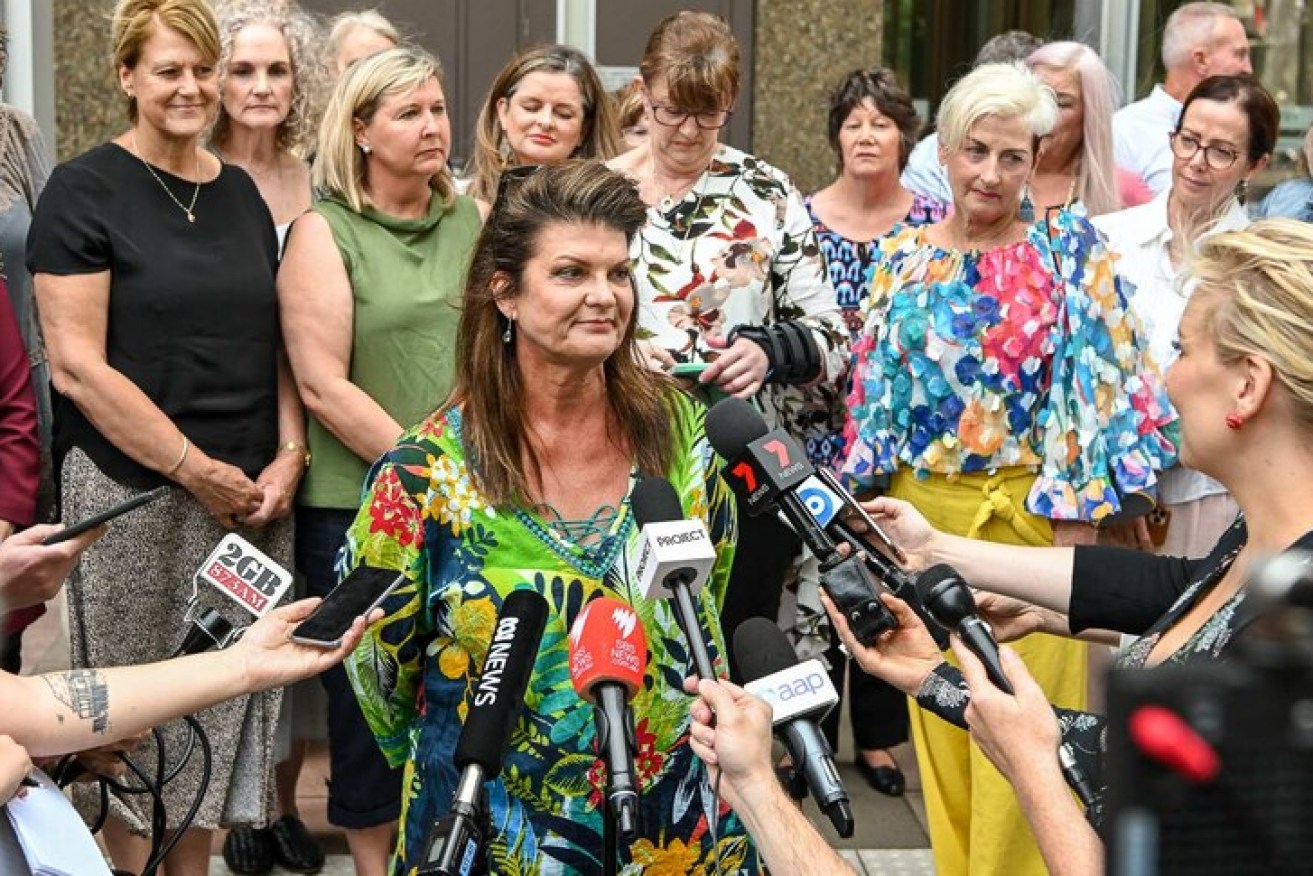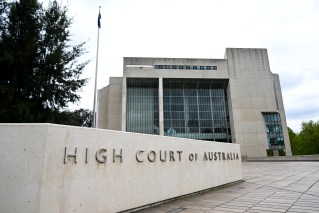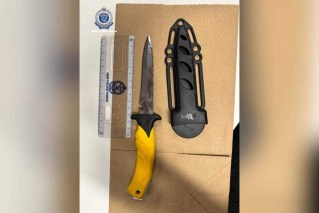Johnson & Johnson loses pelvic mesh court appeal

Julie Davis, centre, surrounded by other women involved in the class action suit outside court after the initial verdict. Photo: ABC News/Brendan Esposito
The Federal Court has dismissed an appeal against a landmark judgment awarding $2.6 million to Australian women with faulty vaginal mesh implants.
In March, drug company Johnson & Johnson and subsidiaries were ordered to pay damages to three women with faulty mesh implants: Kathryn Gill, Diane Dawson and Ann Sanders.
They are the lead applicants in a class action of thousands of women with serious side effects from the implants, including chronic pain and infection.
The devices, also known as transvaginal mesh, were implanted into the pelvis for conditions that include pelvis organ prolapse and stress urinary incontinence.
They were banned in 2017 and a Senate inquiry in 2018 found women who were suffering after having the mesh inserted were “ignored” and “treated appallingly”.
During a seven-month trial, a court heard of a “tidal wave” of aggressive marketing to surgeons and patients that suggested implanting the mesh was a “quick and easy operation”.
Justice Anna Katzmann found the Johnson & Johnson was negligent and driven by commercial interests.
Johnson & Johnson appealed against the decision in a Federal Court case before Justices Jayne Jagot, Bernard Murphy and Michael Lee.
The three-judge panel has dismissed the company’s appeal.

Johnson & Johnson appealed against the original decision in a Federal Court case. Photo: AAP
Shine Lawyers’ Class Actions Practice Leader Rebecca Jancauskas said this was one of the largest women’s health class actions in Australia’s history.
“It has been a long journey to get to this point in a case which has been vigorously defended by Johnson & Johnson at every turn,” she said.
“We have fought hard to ensure the voices of these incredibly brave women are heard, as they’ve struggled with the chronic pain and life-altering complications from their mesh and tape implants.”
Ms Jancauskas said more than 10,000 Australian women have registered for the class action so far.
-more to come








